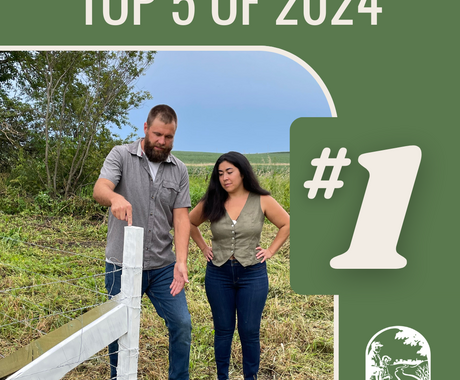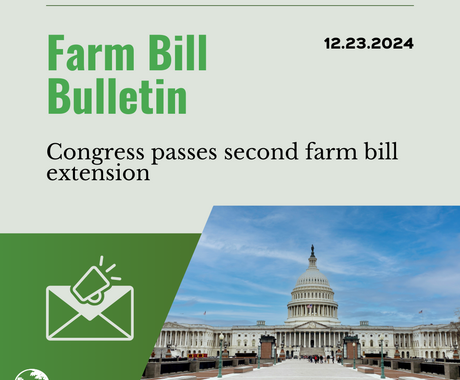By Cora Fox, former staff member. Published in the Des Moines Register, Jan. 7, 2018
For many years, the Center for Rural Affairs has advocated for support of common-sense and effective policy reform to close loopholes in the farm safety net and curtail further abuse of taxpayer dollars. In preparation for a farm bill, I shed light on tiresome abuse of farm program payments and the implications of poor policies that support this abuse.
Unfortunately, this isn’t the only example of exploitation of loopholes and abuse of taxpayer dollars by some farming operations. Payments from the Market Facilitation Program, administered by U.S. Department of Agriculture’s (USDA) Farm Service Agency, are also being misused.
In 2018, President Trump pledged $12 billion through USDA’s Commodity Credit Corporation to provide direct aid to corn, cotton, dairy, hog, sorghum, soybean and wheat producers. Through the Market Facilitation Program, USDA has administered this direct aid to provide short-term relief to producers who are feeling the effects of ongoing trade disputes with foreign governments.
In order to participate in the Market Facilitation Program, eligible applicants must have ownership in the commodity; be actively engaged in farming; have an adjusted gross income of less than $900,000 for 2014, 2015 and 2016; and comply with USDA’s Highly Erodible Land and Wetland Conservation regulations.
Additionally, Market Facilitation Program payments are capped per person or legal entity at a combined $125,000 for qualifying commodities.
These requirements are not unlike those for other farm programs. Yet, a recent report from the Environmental Working Group highlights two major flaws in the way Market Facilitation Program payments are divvied up:
- Some farming operations are receiving excessive payments because they are able to take advantage of loopholes, like having numerous absentee managers or family members claim “active personal management.”
- Some of these payments are going to individuals who do not live or work on the farm.
According to the Environmental Working Group, with information acquired through a Freedom of Information Act request, 85 Market Facilitation Program payment recipients received more than the cap of $125,000. One legal entity received nearly $440,000 in Market Facilitation Program money. It is likely that USDA made more payments of this size that we don’t know about: The information shared covers only $356 million in direct aid to farmers, while USDA states nearly $840 million has been paid out through the Market Facilitation Program in the first round of relief.
The problem is there is no cap on the number of payments that can go to one farming operation, which makes the $125,000 cap on a single Market Facilitation Program payment essentially meaningless. Since Market Facilitation Program payment limitations are not tied to commodity subsidies, crop insurance subsidies and other forms of federal assistance, some farming operations are literally harvesting hundreds of thousands of dollars from taxpayers’ wallets by way of Uncle Sam.
How is this happening? A few of the largest farming operations are claiming several individuals and/or legal entities are actively engaged, and current policy makes it difficult for USDA to determine whether or not their contribution is significant enough to qualify. This allows for numerous “managers” and/or family members to stake claims for payments, even when they may have never stepped foot on the farm.
While this information brings awareness to the gross abuse of taxpayer dollars in the Market Facilitation Program, it’s just the beginning. In light of the newly released farm bill, it’s apparent that Congress is fine with expanding loopholes for crop subsidies, undermining already weakened policies that have been on the books for years. Distant relatives, including nieces, nephews and cousins, are now eligible to qualify for subsidy payments under the umbrella of exemption: Farming operations comprised solely of family members are exempt from active personal management restrictions.
These policies for both farm programs and the Market Facilitation Program, which include exemptions for distant relatives and a broad actively engaged provision, are a heavy burden on the shoulders of American taxpayers. The pre-existing and recently expanded exemption from active personal management for family members is a loophole that drives large, corporate farms to reorganize as “family” farms to reap maximum benefits from government programs. And without a strong actively engaged rule, large sums of taxpayer dollars will continue to line pockets of individuals who aren’t spending time in the field or on the farm.
Policies are worthless if they aren’t enforceable. A farm safety net riddled with loopholes allows for a few large farming operations to greatly benefit from taxpayer dollars, while America’s true beginning and small family farmers struggle to make ends meet. The lack of oversight, accountability and enforceability in these policies — intended to help farmers stay afloat when times are tough — actually hurts the vast majority of producers in the long run.
Congress’ poor policies are driving farm consolidation and hurting our rural communities. The time for change is now.
Cora Fox is a sixth-generation family farmer in western Iowa.





